Two Iranian Christian Converts Begin Prison Sentences
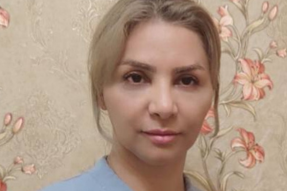
Two Iranian Christian converts, one in capital Tehran and the other in northern city of Rasht, have begun jail sentences.

Two Iranian Christian converts, one in capital Tehran and the other in northern city of Rasht, have begun jail sentences.
Sakineh (Mehri) Behjati was transferred to Lakan Prison in Rasht Saturday after being convicted of “acting against national security” after attending home-based religious meetings and “promoting Zionist Christianity.”
Article 18 website, a London-based organization that says it promotes religious freedom in Iran and operates “under a number of Iranian churches in Europe,” claimed that another Christian convert, identified as 51-year-old Fariba Dalir, began serving a two-year prison sentence in Tehran’s Evin prison Saturday, after being charged with acting against national security through establishing and leading what Article 18 called “an Evangelical Christian church.”
While Iran persecutes followers of the Baja’i religious community and rejects esoteric philosophies and cults, the constitution recognizes Christianity, Zoroastrianism and Judaism – whose members have official representatives in parliament. However, churches that are allowed to operate are ethnic Christian congregations, such as Armenians and Assyrians.
These established churches are discouraged from accepting new members, and there is official suspicion of evangelical, millenarianist Protestant sects that carry out services in Persian. Renouncing Islam is forbidden by Sharia and the punishment could be death, although the government in Iran pursues lesser punishments.
The United Nations Special Rapporteur on the Situation of Human Rights in Iran, Javaid Rehman, said in February that at least 53 Christian converts were arrested in Iran in 2021.
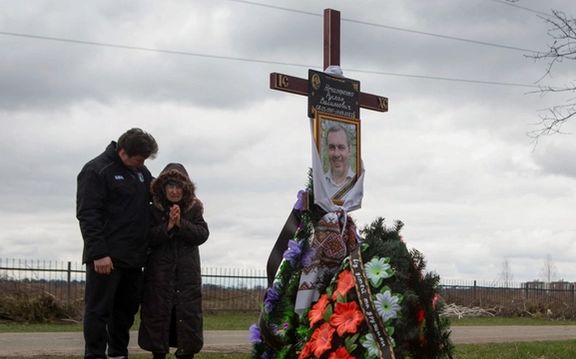
Pro-Russia views about developments in Ukraine appear to be changing in the Iranian media landscape as the Russian invasion drags on with much brutality.
Until last week, Iranian media with very few exceptions across the country's political spectrum echoed the party line about developments in Ukraine, in a probably concerted way based on orders from the Culture Ministry and the Supreme Council of National Security.
This policy highlighted Russian “victories”, promoted Moscow’s propaganda about NATO’s role in the conflict and omitted the word “invasion”.
Over the weekend, two interviews, one with Ukraine's ambassador in Tehran in Asia newspaper, and an interview with a member of Ukrainian Parliament in Etemad Online supported the Ukraine in the conflict while other media outlets, particularly Khamenei-controlled state television continued the usual official rhetoric about Russia trying to purge Ukraine of Nazis and preventing the expansion of NATO.
The state television's coverage of Ukrainian developments has been most annoying for viewers as it constantly portrayed the war as Ukrainians fighting Ukrainians, while the viewers have access to international TV stations which reflect the truth in a variety of different shades.
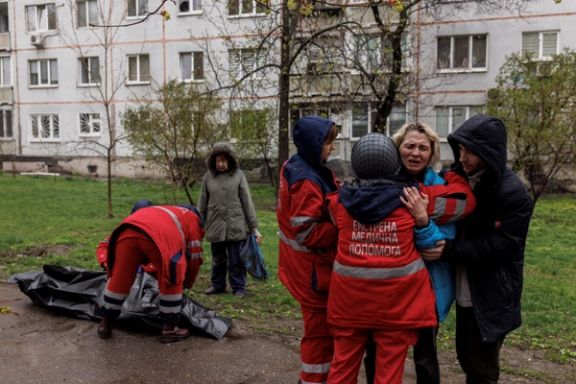
In the interview with Asia, Ukraine's ambassador to Tehran Serhii Burdyliak said that Iran has not helped Ukraine in any way while nearly the rest of the world including Central Asian states have sent financial aid. Some Iranians on social media criticized the ambassador for the remark and lashed out at Ukraine for never saying anything about US sanctions on Iran.
The ambassador further attacked the Iranian government over its stance on the Russian invasion and challenged it to send oil to Ukraine. Both Supreme Leader Ali Khamenei and President Ebrahim Raisi expressed support for Moscow at the start of the conflict in Ukraine.
Meanwhile, reformist Etemad Online quoted a Ukrainian lawmaker as having said that Ukraine will inevitably win the war. The lawmaker added: "We believe that the situation will improve if the Iranian government supports Ukraine and changes its rhetoric about the war in Ukraine."
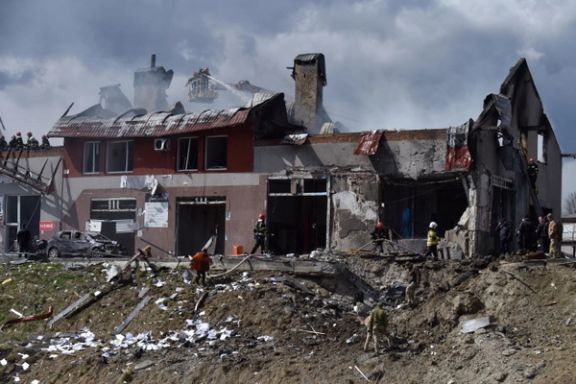
The lawmaker, identified only as “Andrey”, said he did not know whether any Iranians are fighting on the Ukrainian side, while adding "it was quite possible." He probably was countering rumors about Iranians helping Russia in the war against Ukraine.
The Iran Diplomacy website which is close to the Iranian Foreign Ministry observed in an analysis published on April 16 that opposing views in Iran regarding the war in Ukraine are divided in a diagonally opposite way.
"Although there are opposing views on the matter, it seems that part of the Iranian society which supports Russia in this conflict is a minority," the Iran Diplomacy maintained. The website added that Iranians have traditionally maintained opposing views on developments involving Russia for complicated historic reasons, but the differences between various attitudes about Russia during the current conflict has created a sharper bipolar environment in Iran, which is evident in media reports.
The bipolar situation in the media appears to have spread to Iranian society in general, the article argued. One group supports the idea of Russia being a reliable partner for Iran and another group whose characteristic is a profound distrust of Russia which is rooted in Iran's modern history.
The article further argued that some Iranians seriously believe that alliance with Russia under the Islamic Republic has prevented Iran's development while also keeping it apart from western countries.
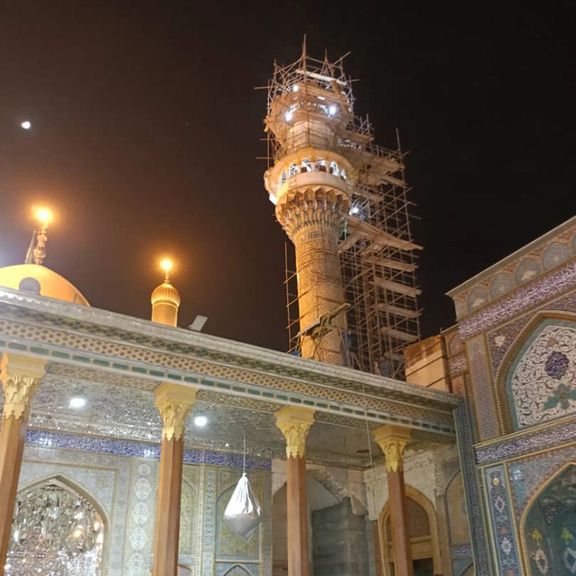
As most Iranians are struggling with dire economic conditions, the aid collected for the reconstruction of Shiite shrines in Iraq and elsewhere has increased.
A member of Iran’s headquarters for the development and renovation of the graves of Shiite figures in Iraq said on Sunday that the amount of donations for projects in the previous Iranian year -- which ended on March 20 – was 30 percent more than a year ago.
Yousef Afzali said donations for the current Iranian year are expected to reach 13 trillion rials, or approximately over $52 million.
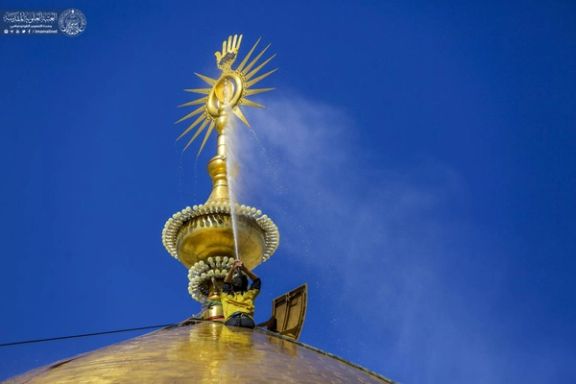
He said in addition to the development of the shrines, other projects have been planned for the reconstruction and development of the tombs of several great religious and national figures buried in Iraq, including Salman the Persian -- a companion of the Islamic prophet Muhammad and the first Persian who accepted Islam – and Rais Ali Delvari -- an Iranian independence fighter and anti-British colonial era activist.
The headquarters, which is affiliated with the Quds (Qods) force of Iran’s Revolutionary Guard, had earlier announced that more than 150 reconstruction projects for Shiite religious sites in Iraq and Syria are being funded by the Islamic Republic and will continue for the next 20 years.

Social media users have launched a twitter campaign in support of Iranian political prisoner Soheila Hijab who has embarked on a hunger strike.
According to some social media accounts which shared the hashtag #SoheilaHungerStrike, Sunday night, the lawyer and human rights activist has been on another hunger strike for days to demand her basic rights as a political prisoner.
“I see no choice but to begin another hunger strike. The officials refuse to give me my furlough despite medical advice. I have lost the use of some of my organs in previous strikes, but see no other choice”, she was quoted as saying in a letter.
Suffering from Covid late in February, the constitutional monarchist was temporarily transferred to a critical care unit (CCU) at a Kermanshah hospital following cardiac arrest after days of neglect in the prison.
Hejab was sentenced to 18 years in July 2020 for "propaganda against the regime", "forming a women's rights group" and "calling for a referendum to change the Constitution", by the notorious judge Mohammad Moghiseh.
She was first arrested in Shiraz in January 2018. Hejab who hails from a Kurdish family from Kermanshah was pardoned and freed. She was violently arrested again in June 2019 by IRGC intelligence, taken to Evin prison, and later released on a large bail.
In May 2020 she was arrested again by Revolutionary Guards' Intelligence Organization and was taken to Qarchak Prison for women in the south of the capital. She was then transferred to Kermansah prison in early January.

Iran's military will target Israel's heart if it makes "the slightest move" against the Islamic Republic, President Ebrahim Raisi told a military parade Monday.
"If you make slightest move against our nation ... our armed forces destination will be the heart of the Zionist regime," Raisi said in a televised speech from the Army Day parade in Tehran.
Raisi also referred to ever-closer cooperation between Israel and Arab states that have normalized relations with the Jewish state.
“Our message to the Zionists is that if you pursue normalization with regional countries, you must know that your smallest action is not hidden from our armed forces and intelligence bodies…,” he said.
The establishment of full relations between the United Arab Emirates and Bahrain, two Persian Gulf Arab states with Israel in 2020 was a significant setback for the Islamic Republic that has campaigned tirelessly in isolating what it calls “the Zionist enemy”.
Tehran’s nuclear program and support for militant groups in the region is what hastened the establishment of ties between Arab states and Israel, which have begun to cooperate on military and intelligence areas.

In February, Israeli defense chief Benny Gantz visited the small Persian Gulf country of Bahrain to expand cooperation, after Iran-backed Yemeni Houthis attacked UAE with missiles and drones in January.
In March, the UAE, Bahrain, Egypt and Morocco held a summit in Israel, in what was a historic development in the Middle East.
Raisi compared the Islamic Republic’s adversaries to Iraq’s Saddam Hussein who attacked Iran in 1980, a year after the establishment of the new revolutionary regime. Eight years of war followed with neither side winning. Saddam was eventually overthrown by a US invasion in 2003 and hanged by a new government.
Raisi said Iran’s enemies should look at what happened to the Iraqi leader and draw their own lessons.
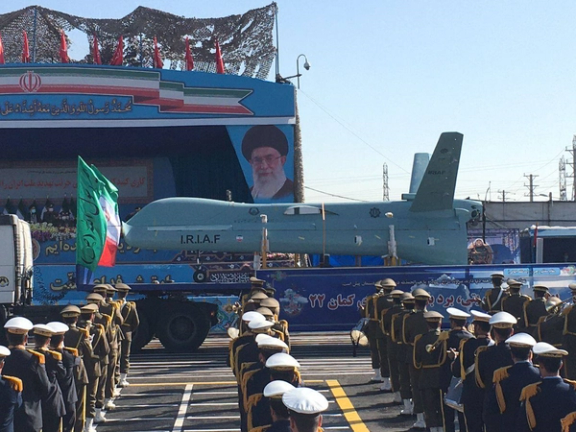
He also drew attention to Biden administration statements that the US ‘maximum pressure’ sanctions against the Islamic Republic have failed. Iranian officials have been using this line of attack against the United States, after the State Department on January 25 criticized former president Donald Trump’s withdrawal from the 2015 nuclear agreement known as JCPOA, and the imposition of sanctions on Iran.
“Today, the State Department spokesman announces in front of the whole world that we [the US] are disgracefully defeated in sanctioning and [exerting] maximum pressure on Iran, and this is the fate of those who want to confront the Islamic system,” Raisi said.
Iran’s Supreme Leader Ali Khamenei had also used this argument, saying the US was defeated and has to agree with Iran’s terms in a new nuclear deal.
Nuclear negotiations that began in April 2021 have stalled as Tehran has demanded the removal of the Revolutionary Guard (IRGC) from the US list of Foreign Terrorist Organizations (FTO).
Top Iranian officials while insisting on their “red lines” in the talks, are trying to put up a brave face, insisting that that they have been able to circumvent US sanctions by exporting more oil and repatriating the funds. The Biden administration apparently relaxed the enforcement of sanctions in 2021 as it was trying to reach a new agreement with Tehran to restore the JCPOA.

Iranian media have revealed new details about a brewing scandal related to the illegal construction of a petrochemical plant near a UNESCO wildlife reserve.
Borna news agency has reported that a man behind three companies licensed to build the project is a shady character who already owes a lot of money to government banks.
President Ebrahim Raisi ordered a new halt to the controversial petrochemical project until "ambiguities about its environmental impact" are removed, interior minister said Sunday.
On April 10, after intense controversy over the environmental impact of the project and shady records of the company behind it, Raisi called an immediate halt but media reports said the company has continued construction on the 90 hectare site close to the Miankaleh UNESCO-designated biosphere reserve.
Environmental activists have been campaigning to stop the project due to expected adverse impact on the coastal region and its wildlife and have even urged Supreme Leader Ali Khamenei to intervene. The land earmarked for the project is also said to be high-quality agricultural public land.
Borna news agency said Foulad Alborz Iranian (FAICO), one of the subsidiaries of Amirabad-e Mazandaran Limited, is at the top of the list of individuals and companies which owe massive sums to the government-owned Tose'e Saderat Bank. Iran's state banks have been publishing lists of their 'super borrowers' with largest debts this week.

Borna said it had acquired documents that showed the guarantee for the payment of the loans had been made by the company's major shareholder, Abbas Abdi, who is also a major shareholder of several other companies active in Mazandaran Province including those involved in the petrochemical project.
Individuals and entities who borrow large sums from state banks through their connections with politicians, bureaucracy or the military are known as ‘super-borrowers’ in Iran. They usually get the multi-million-dollar loans pretending to have job-creating projects, but often use the money for other purposes or simply take it out of the country and never repay. The same connections they have, often protect them from prosecution and at most they lose worthless collaterals to banks. It is believed that officials who help ‘super-borrowers’ have a stake in the schemes.
The news agency also published the image of a ruling by the justice department of Tehran that shows Abdi was sentenced to seven years in prison for fraud in 2020, in absentia. No one knows if he is now in Iran or not.
Borna said FAICO owed over 13 trillion rials ($52 million in current exchange rate) to Tose'e Saderat Bank for two foreign currency loans it received at government subsidized rates in 2016, and the interest and that the collateral offered by Abdi for the loans is worth only one-third of the sum of the original loan.
The report also suggested that Abdi who has a record of failing to pay back huge loans as well as fraud was helped by persons or entities in powerful centers to get the license to launch the petrochemical megaproject.
Several powerful figures including Parliament Speaker Mohammad Bagher Ghalibaf, the governor of Mazandaran Province and the Friday Prayer Imam of the region have strongly and publicly defended the project and some hardliners have gone as far as saying opponents of the project are in essence opponents of the Supreme Leader, thus trying to accuse them of a political crime.